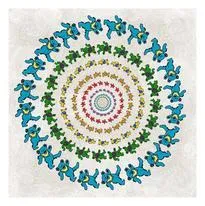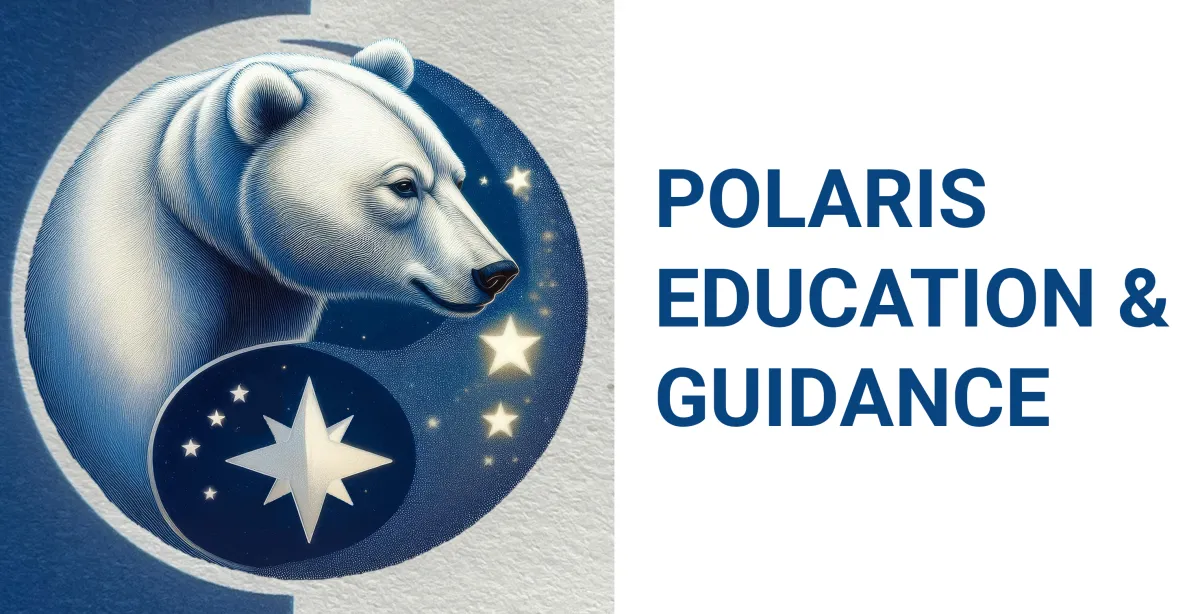Adventure Mentor
"Life is a Daring Adventure..."
HELEN KELLER

Adventure Mentoring provides a unique combination of adventure based activities and empowerment training for youth mentoring programs.
Polaris' Adventure Mentor project works in collaboration with you to fully achieve your organization's mission.
Our innovative approach to developing leadership, communication, and relationship skills produces ongoing and meaningful results.
Our goal is for your participants to look back on their mentoring relationship as one of the most powerful and positive experiences of their lives.




Polaris' innovative programs combine adventure based activities such as whitewater rafting with professional facilitation and skills training to:
Deepen and "Fast Forward" the Mentoring Relationship
Participation in a fun, positive weekend of shared adventure and self exploration creates comrades with a depth of relationship that generally takes much longer to establish.
Enhance Personal / Life Skills
As part of the weekend program, your mentors and mentees explore and appreciate their self-concept, strengthen their sense of community, and develop effective approaches to problem solving and goal setting.
Strengthen Mentor Effectiveness
Comprehensive training in problem solving, goal setting, active listening, and crisis communication provides mentors with confidence and skills to engage in meaningful relationships with youth.
Recruit, Retain, and Reward Mentors
Participation in a rich, fulfilling experience opens new possibilities and creates momentum that contributes to an added commitment to the mentoring experience.
Polaris Education & Guidance, Inc. is dedicated to creating life affirming educational experiences. Since 1994, Polaris' professional staff have worked to provide consulting, training, and direct services to "at risk" youth programs.
Relationship Building
AM’s relationship building training draws attention to the critical elements that go into creating rich, rewarding, interpersonal connections between individuals. AM recognizes that mentoring relationships have the potential power to nurture and change the lives of all those involved.
Relationship Building elements include:
- Creating Shared Experiences
- Exploring the Personal Commitment
- Why do we want to engage in these relationships
- Laying the Foundations of Trust Between Individuals
- Encouraging Reliability and Consistency
Personal Self
AM recognizes the importance of the individual with respect to being a part of a powerful life-affirming relationship. To this end, AM’s programs focus attention on changing one’s personal expectations of what is possible. AM works to strengthen the personal skills of everyone involved in the programs.
Personal Self elements include:
- Self Awareness / Observation
- Self Worth / Self Esteem / Self Appreciation / Self Acceptance
- Self Responsibility
- Encourage Creativity in Life / Living
- Goal Setting
- Anger / Conflict Management
- Personal Understanding of the Context of Our Lives

Polaris' Adventure Mentor (AM) is a team of professional educators, therapists, and outdoor guides, dedicated to providing a fun and constructive mentoring development curriculum. Our unique approach draws on extensive, hands-on experience with youth resiliency.
AM's comprehensive program addresses key growth areas that serve to strengthen one’s ability to engage in meaningful relation- ships between youth and adults.
These growth areas include Leadership, Communication, Relationship Building, Personal Self, and the Experiential Environment.

Polaris' innovative programs combine adventure based activities such as whitewater rafting with professional facilitation and skills training to:
Communication Development:
AM’s communication development training is designed to foster and enrich the connection between individuals and to explore the art of interacting.Communication Development elements include:
Being Present and Engaged
Eye contact, body language, voice intonation, and recognition cues.
Articulation of Ideas
Clarifying ideas for our selves facilitates our abilities to effectively share our ideas with others
Problem Solving and Conflict Resolution
Avoiding aggression and defensiveness
Constructive feedback
non-judgmental communication
Youth are not broken and in need of fix. Each has within them the capacity for healthy and optimal life experience. Often the very traits which may have led to problems are underlying strengths with positive intentions at their core.
Learning & positively applying one's resources- with the support of a caring adult relationship- is the fundamental curriculum of a mentor - mentee relationship.
This assumption of innate potential and attraction to "a successful & healthy life" is at the heart of the Polaris resiliency model. The significance of a decent caring adult in a youth's life is easy to accept, and appears to be overwhelmingly supported by decades of resiliency research.
TRUST is a fundamental principle upon which this relationship is developed.
Polaris believes in supporting this relationship; through training in skill and personal development for mentors, as well as providing shared opportunities for life affirming experiences through adventure based curriculum.
This stated, we acknowledge that NO amount of professional training can make an adult worthy of the trust of a youth, or capable of generating it. This ability, this relationship potential, is prior to technique, to theory, to technical knowledge.
The realization of this truth is our primary goal.


Experiential Environment
AM acknowledges the impact that place and surroundings have on individuals and their experiences with themselves and their lives.AM is dedicated to using the natural environment in conjunction with participants’ daily environment to create experiences that are:
- Out of the Ordinary / Different
- Active (Physically and Mentally)
- Engaging
- Healthy
- Exciting
- Challenging
- Supportive
- Cognizant of Nature’s Power to Nurture
- SAFE (Emotionally and Physically)

POLARIS MENTOR - Basic Principles
Life is to be lived now, not in the past, and lived in the future as a present challenge.
Trust between youth and adult (mentor - mentee) is essential, the foundation on which all other principles rest, the glue and beginning point.
Competence makes a difference; youth should be helped to be good at something, and especially at schoolwork.
Time is an ally - working on the side of growth in a period of development when life has a tremendous forward thrust.
Self-discipline and control can be taught.
The cognitive competence of youth can be enhanced; they can be taught skills and strategies for life management and coping with the complex array of demands placed on them by family, school, and community.
Feelings should be nurtured; shared spontaneously, controlled when necessary, expressed when too long repressed, and explored with trusted others.
The group is very important; it can be a major source of instruction in growing up.
Ceremony and ritual give order, stability, and competence to youth, whose lives often seem chaotic.
The body is the armature of the self, the physical self around which the psychological self is constructed.
Communities are important for youth, but the uses and benefits must be experienced to be learned.
In life, and particularly in growing up, a youth should know some joy in each day and look forward to some joyous event for tomorrow.
Recent Blog Posts
How Embracing Uncertainty Can Transform Your Life Amidst Illness
In this article:
Discover how embracing uncertainty can transform your emotional landscape and lead to unexpected resilience in the face of life-changing illnesses.
Learn effective mindfulness techniques that can ground you in the present, helping you regain control over your emotional responses amid chaos.
Uncover inspiring stories from individuals who have thrived by confronting their fears and finding deeper meaning in their struggles with illness.
Discover Core Transformation
Read on for the whole story...
Embracing Uncertainty
Life is inherently unpredictable, and when faced with a life-changing illness, the waves of uncertainty can often feel overwhelming. However, it is this very uncertainty that may hold the key to discovering peace amidst the chaos.
Whether you're the one affected by the illness or a caregiver navigating this journey, understanding and embracing the unknown can lead to resilience and unexpected freedom.
The Power of Acceptance
Many individuals grapple with a whirlwind of emotions—fear, confusion, and even anger. Acknowledging these feelings is a powerful first step toward transformation. Instead of resisting what you cannot control, allow yourself to sit with your emotions. This acceptance does not diminish the challenges you face; rather, it invites you to approach them with a new mindset, fostering growth and understanding.
Mindfulness Practices as a Tool
One effective technique for coping with uncertainty is mindfulness. Engaging in mindfulness practices, such as meditation or deep breathing exercises, can ground you in the present moment, shifting your focus from what lies ahead to the here and now.
Meditation: Spend a few minutes each day in quiet reflection. Find a comfortable space, close your eyes, and concentrate on your breathing. Allow thoughts to come and go without judgment.
Deep Breathing: Practice deep breathing techniques by inhaling deeply through your nose, holding for a count of four, and exhaling slowly through your mouth. This simple act can significantly alleviate anxiety and restore a sense of control.
These practices can help you realize that you have more control over your emotional responses than you initially believed.

Prioritizing Self-Care for Caregivers
For caregivers, managing stress is crucial for maintaining balance. It is essential to integrate self-care routines into your daily life. Consider setting aside time for activities that recharge your spirit. Here are a few examples:
Physical Activity: Taking a walk, going for a run, or practicing yoga can stimulate both physical and mental well-being.
Creative Outlets: Engage in journaling or indulge in a favorite hobby—be it painting, gardening, or cooking.
Remember, supporting someone through a challenging time does not mean sidelining your own well-being. Prioritizing self-care not only benefits you but also enables you to be a more effective support system.
Building Resilience Through Growth Mindset
Cultivating resilience is another vital aspect of navigating change. Adopting a mindset that reframes challenges as opportunities for growth can be empowering. Reflect on past difficulties and consider how they shaped the person you are today. This practice fosters a sense of hope and purpose, even amidst uncertainty.
The Core Transformation Methodology encapsulates this transformative process. It encourages individuals to reframe their experiences and find deeper meanings in their struggles. Engaging with this approach allows you to unlock lessons inherent within your illness, ultimately guiding you to a greater sense of self.
Inspiring Narratives of Hope
Take heart in the stories of others who have ventured into the unknown and thrived. Many individuals living with life-altering illnesses share tales of profound growth gained by learning to embrace uncertainty. These narratives serve as bright beacons of hope, illustrating that while the path may be rife with challenges, it is also filled with the potential for transformation and newfound freedom.
Conclusion: You Are Not Alone
In times of uncertainty, it’s essential to remember that you are not alone. Embrace your journey, lean into the unknown, and discover the strength that lies within. As you traverse this path, embracing the unpredictability of life can lead not only to peace but to a greater appreciation of resilience and personal growth.
In closing, allow yourself the grace to navigate through the complexities of your emotions and experiences. The journey may be daunting, but it can also illuminate pathways you never knew existed. Embrace both the uncertainty and your innate strength, for they are intertwined in the art of life.
Martin

COMPANY
CUSTOMER CARE
LEGAL
FOLLOW US
Copyright 2025. . All Rights Reserved.
